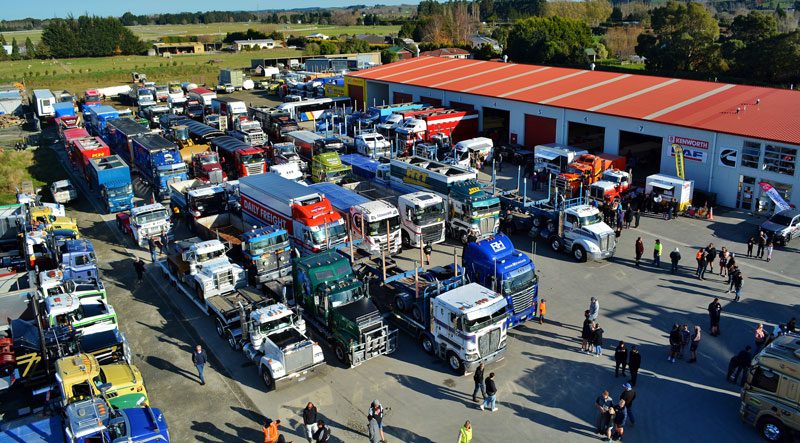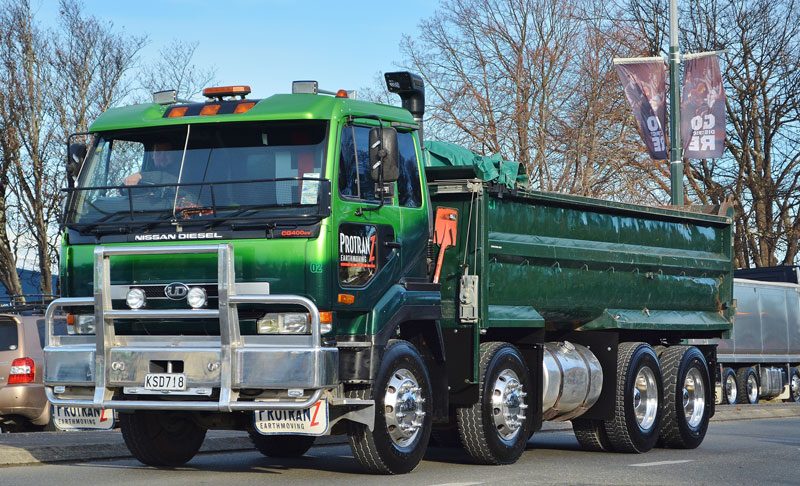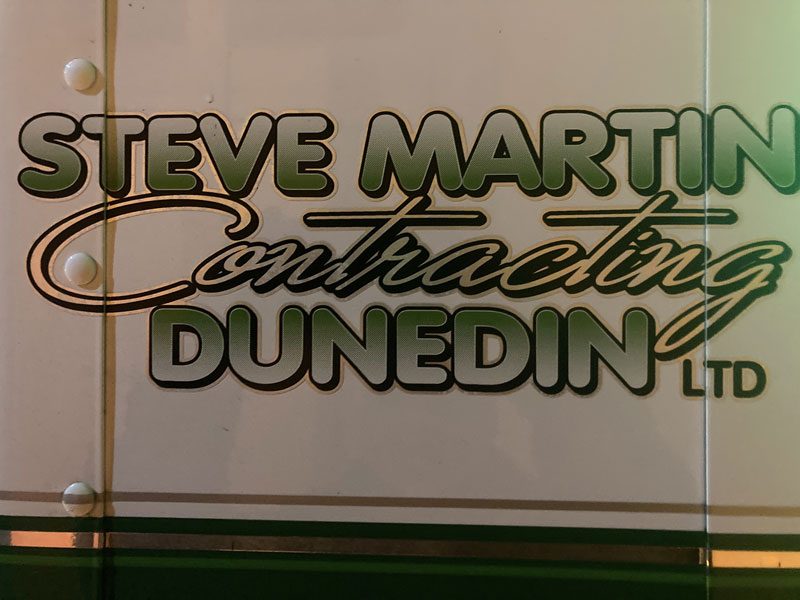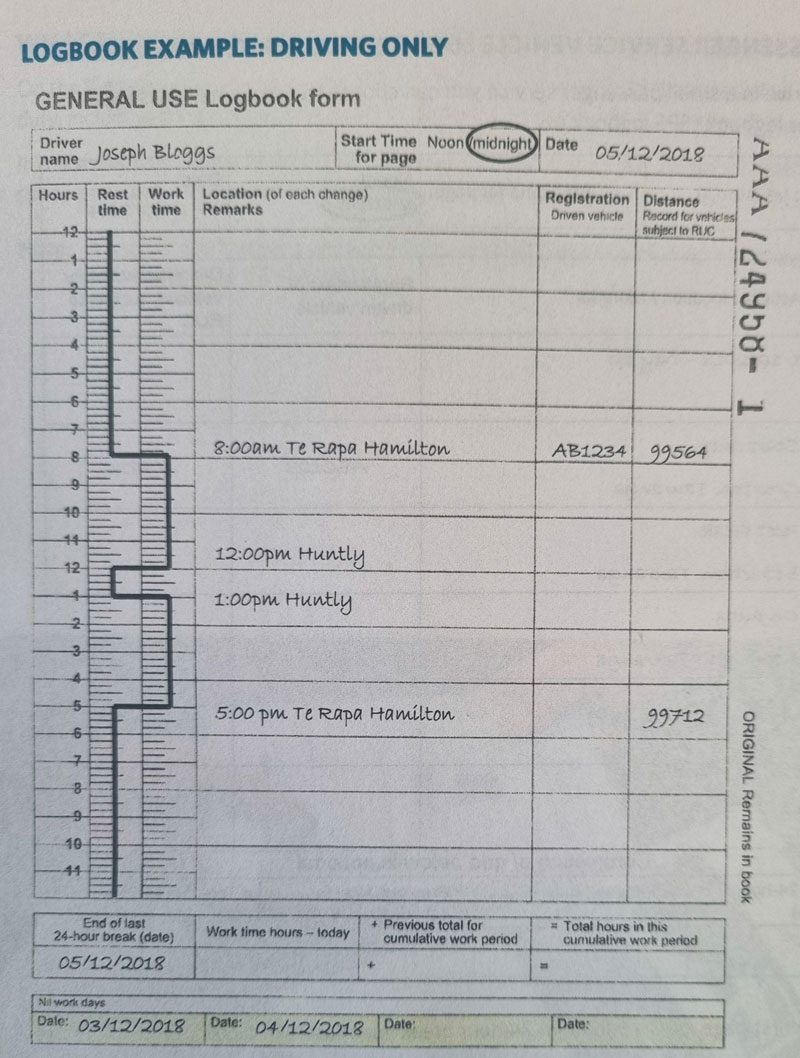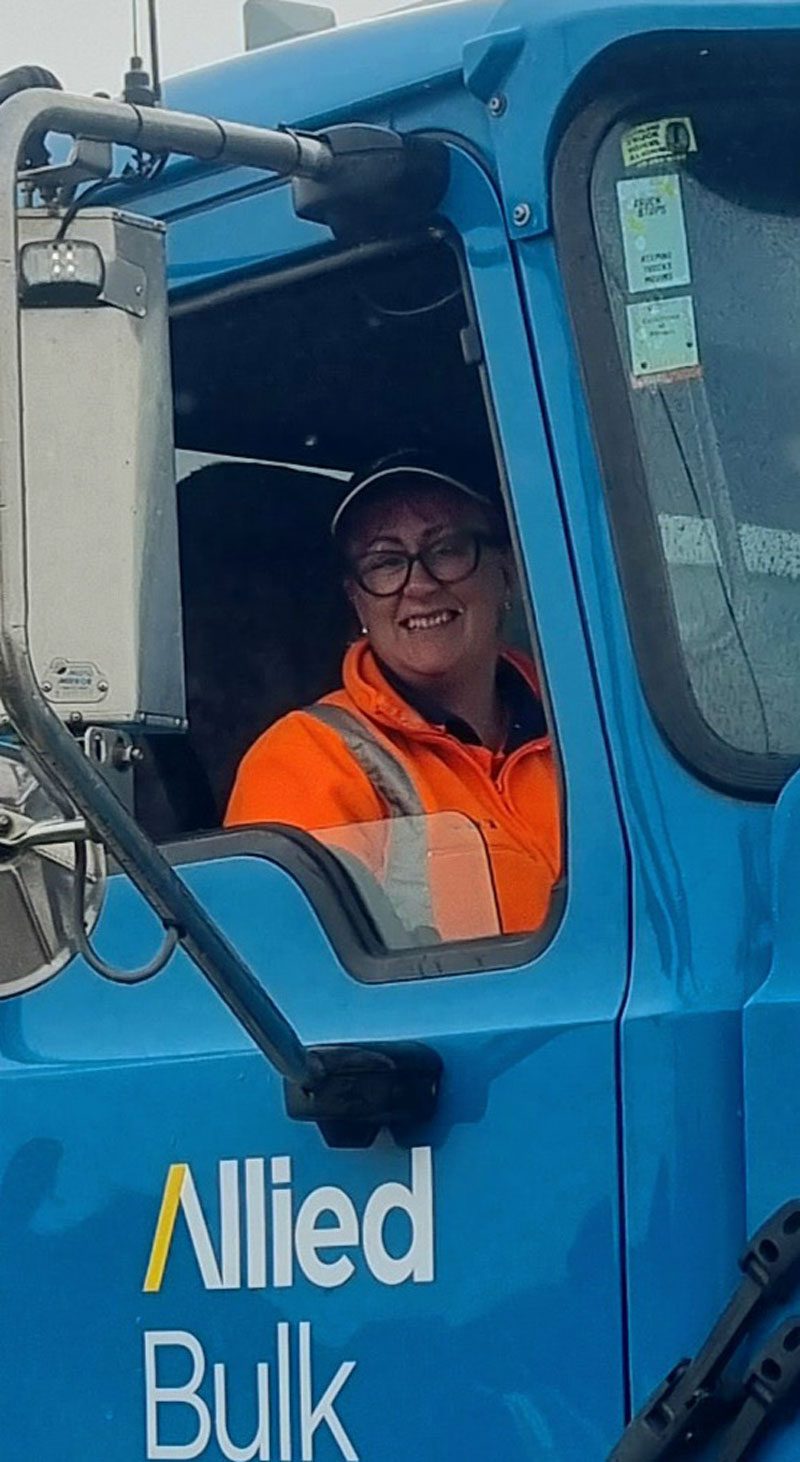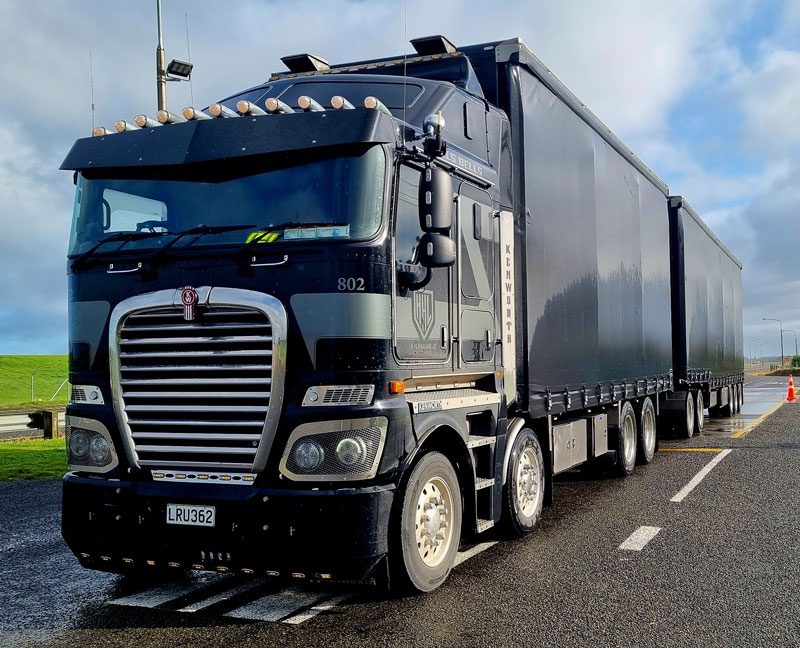Q & A with a Truckie
Blake puts on his interviewer hat and gets to know his truck driving Pop, Mark Close.
Q: What age did you start driving trucks?
A: 17, I’ve been driving for 39 years.
Q: What truck do you currently drive?
A: Freightliner Argosy.
Q: What do you currently cart?
A: Anything that goes in tipper trailers but mainly grain and fertiliser.
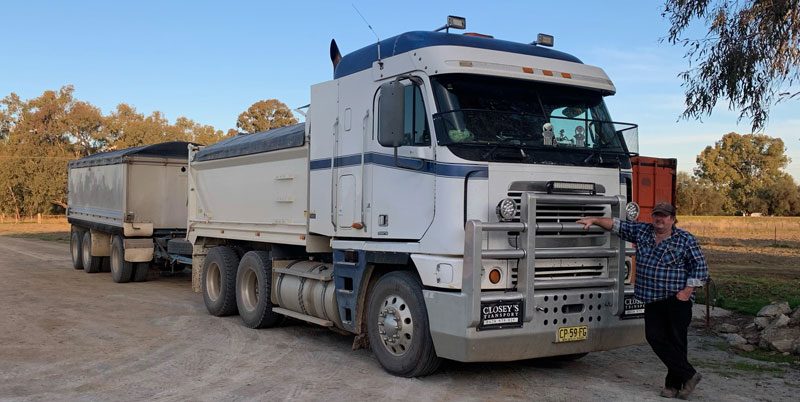
Q: What’s the worst load you’ve ever carted?
A: A load of wood without tipper trailers. It had to be hand loaded and unloaded.
Q: What type of trailers have you pulled?
A: Everything but livestock. Over the years I’ve pulled tippers, tankers, car carriers, flat tops and tautliners.
Q: Whats the best thing about being a truck driver?
A: Beating Kenworths with my Freightliner (he wishes, he knows I’m a Kenworth fan so he is just stirring me up!).
Q: What is the best thing you have carted?
A: Potatoes in the tipper because its a quick and easy load.
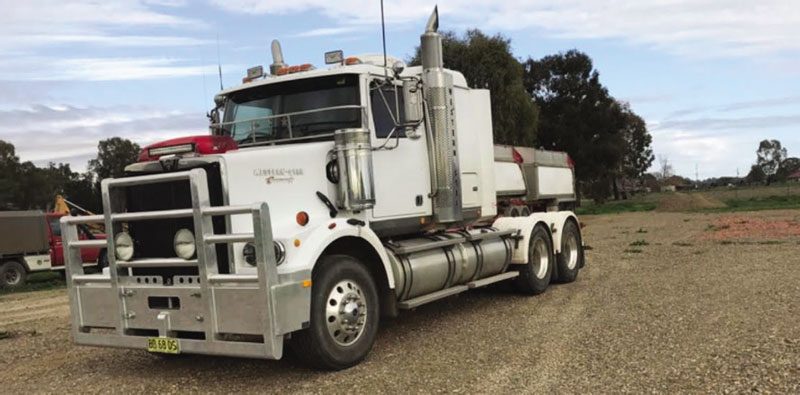
Q: What kind of training did you have to do to get your licence?
A: I had to go for a drive around town with a police officer. The day I got my licence I went on my first interstate trip.
Q: What’s the hardest thing about being a truck driver?
A: Having to anticipate what other drivers are going to do and dealing with caravans.
Q: What’s something most people don’t know about trucks?
A: It’s not like driving a car, they take a really long time to build up speed and a long time to stop.
Q: What is your favourite truck?
A: I had a 4800 series Western Star. That would have to be my favourite truck.
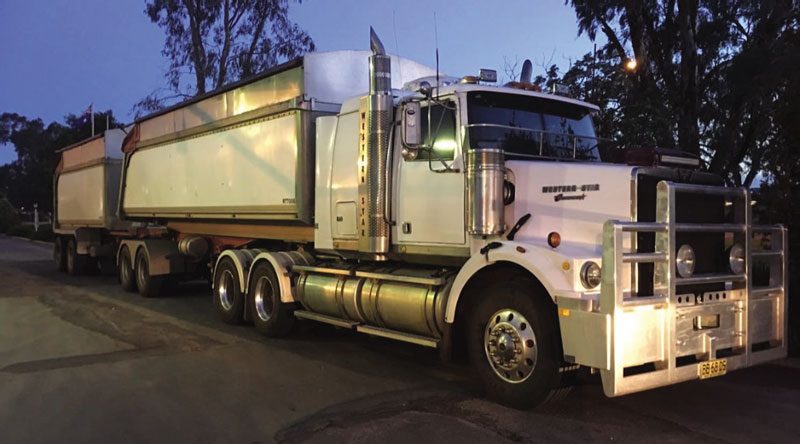
Catching up with Eden Haulage Ltd
The gold Eden Haulage trucks from Invercargill in the deep south with their bright graphics will be familiar to many Little Trucker Down Under readers. Milly McCauley catches up with owner Phil Collinson to find out more.
Who owns Eden Haulage?
Phil: Eden Haulage is owned by me, Phil Collinson and my family.
How long has Eden Haulage been in business?
Phil: Eden Haulage commenced in 2005 with one truck, it then expanded in 2008 into four trucks. The company progressively got bigger from 2012, by adding a truck each year.
Where do you have trucks based?
Phil: 12 of the 13 trucks run by Eden Haulage are based at the Invercargill depot, and one truck is based in Canterbury.
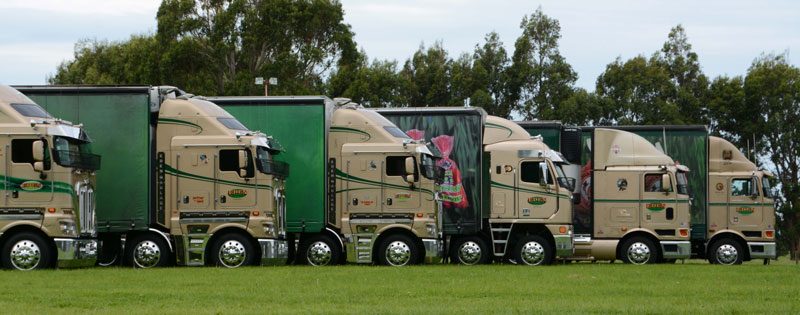
How many trucks does Eden Haulage operate?
Phil: Eden Haulage operates 13 trucks. Of those, 12 work every day and one older truck helps do any local jobs. Two trucks in the fleet are double shifted (when two drivers share one truck at different times of the day, allowing it to run for up to 24 hours a day).
What makes of trucks do you have and how many of each?
Phil: Eden Haulage has two Internationals, two DAFs, two Freightliner Argosys, six Kenworths and one small Nissan Diesel delivery truck.
How many people does Eden Haulage employ?
Phil: The company has 16 staff all together.
What type of loads do you cart?
Phil: A large part of the company’s work is fresh produce (vegetables and fruit). The remainder is cardboard packaging, seafood, groceries, timber and some general freight.
Where are the main areas you operate in around New Zealand?
Phil: Eden Haulage trucks operate mainly between Invercargill, Central Otago and Christchurch, however some of our trucks travel each week to Nelson, Blenheim, Tauranga and Auckland.
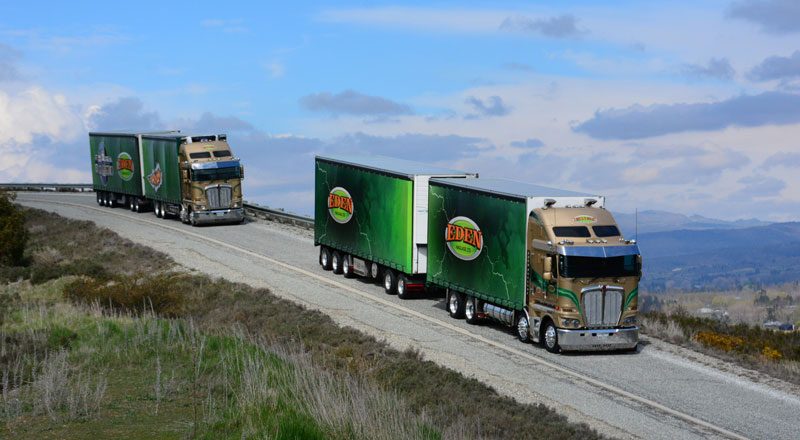
What is your title at Eden Haulage and what are your responsibilities?
Phil: I am the director of Eden Haulage; I do everything from relief driving to dispatching. I try to do everything I can to support the business, from something as little as changing a light bulb, to meeting with customers to find out how we can assist them better.
Did you always think you would work in transport?
Phil: I always knew I would work in transport, all I dreamed of when I was young was to work for the rural transport company I happened to live next door to. The idea of a career in transport just made sense for me.
What’s your favourite thing about working in the industry?
Phil: The great people I meet.
What things would you like to see change for the transport industry over time?
Phil: I would like to see the industry be able to produce better money and better conditions to pass onto the people who drive the trucks.
Do you have a favourite truck in your fleet?
Phil: My favourite truck would be the C16 Caterpillar-powered Freightliner Argosy we bought secondhand in 2013. I thought it was a cool truck when its previous owners put it on the road.

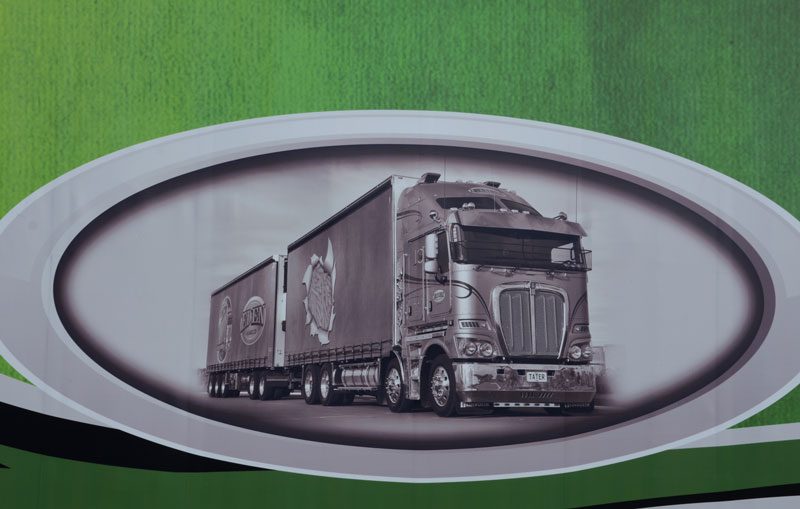
What are the various positions in Eden Haulage?
Phil: We have an operations dispatcher, administration staff, metro deliverers/ loaders, relief drivers and a team of linehaul drivers.
What would be some advice you would give to any young people who want to start a career in transport?
Phil: I would advise anyone to listen to others, be a diligent worker and try to absorb all the information you can from people within the industry.
Can you tell me a fun or interesting fact about Eden Haulage?
Phil: Many of the trucks in the Eden Haulage fleet carry a Mr Potato Head picture and name on them, this theme is because of the large number of potatoes Eden Haulage carries.
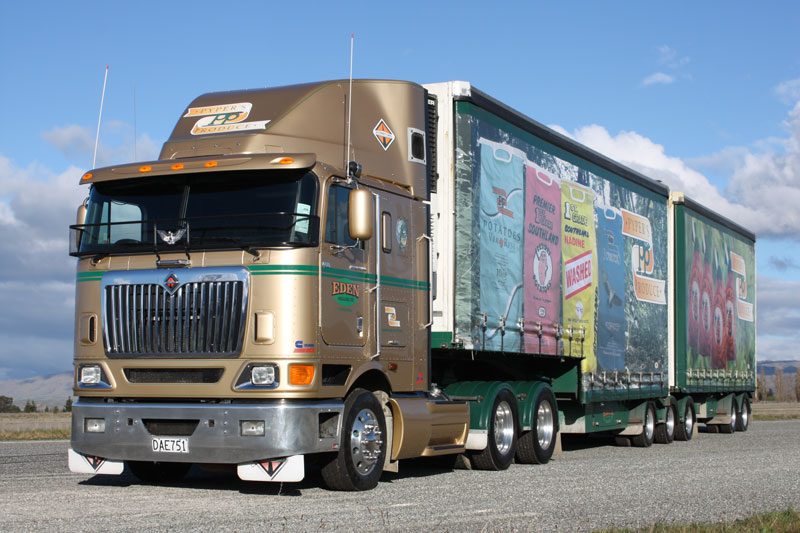
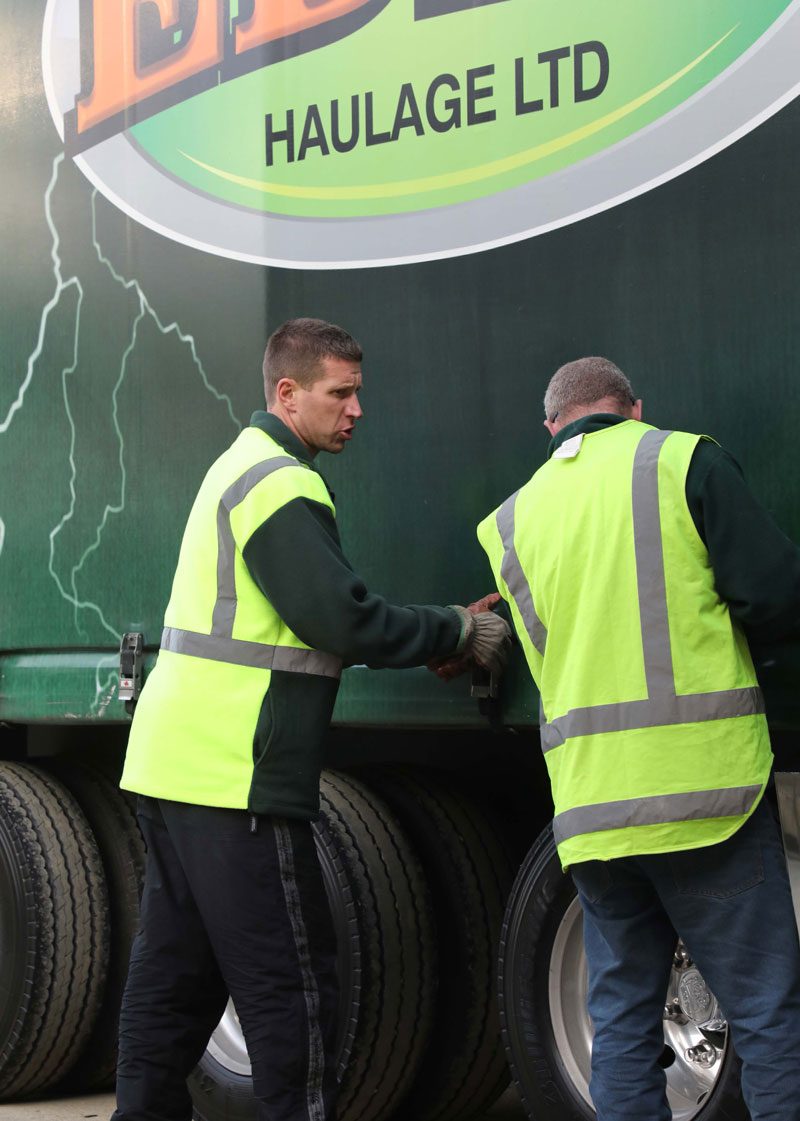
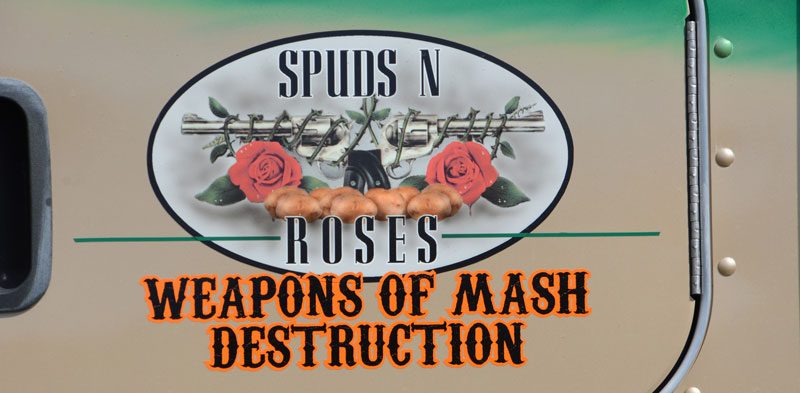
Chocolate peanut butter smoothie
Smoothies are the perfect breakfast on the go or a yummy snack. Pour it into a drink bottle and it’s a great treat for the driver’s cab!
Ingredients
• 4 bananas
• 1/4 cup peanut butter
• 2 cups milk
• 2 teaspoons cacao powder or cocoa powder
• 1 cup ice
• 1 tablespoon honey
Method
1) Add all ingredients to a high-powered blender and blend until smooth.
2) Serve immediately.
The importance of vehicle maintenance
Making sure a truck is fit for the road is an important part of being a truck owner. Keeping up with vehicle maintenance is an important job for truck drivers and truck owners, and trucks are regularly put through inspections to make sure they are safe.
Keeping drivers and other people on the road safe is an important part of owning any vehicle - including heavy vehicles like trucks. Keeping a truck in good condition reduces the likelihood of accidents and keeps drivers safe. Safety inspections on trucks are carried out regularly and can include checks of:
• Airbags
• Tyres and wheel alignments
• Seatbelts
• Trailers
• Windscreens
• Headlights
• Brakes
• Fuel tanks
• Battery
• Exhaust
• Suspension
• Indicators


Popcorn cauliflower
A different take on popcorn chicken – this one uses yummy cauliflower, and is still crunchy and delicious!
Ingredients
• 1 cauliflower, cut into small florets
• 1 egg, lightly whisked
• 1 cup breadcrumbs
• 1/2 cup finely grated parmesan (optional)
• 1 tsp smoked paprika (optional)
Method
1) Preheat the oven to 200°C. Line a baking tray with baking paper.
2) Cook the cauliflower in a large saucepan of boiling water for 5 mins or until just tender. Drain well.
3) Transfer to a large bowl and stir in the egg.
4) Combine the breadcrumbs, parmesan, and paprika in a large bowl. Add the cauliflower mixture and toss to combine.
5) Arrange the mixture in a single layer over the lined tray. Spray some oil (such as olive oil) over the cauliflower. Season with salt and pepper. Bake, turning occasionally, for 20 minutes or until cauliflower is golden brown and crisp.
Trucks on display
Gore in Southland is famous for its brown trout fishing – it’s a fact that Gore is the brown trout fishing capital of the world. But every Queen’s Birthday Weekend, the town’s next most famous thing comes to town – The Gore Truck Show.
This year saw the show swamped with around 130 trucks from as far afield as Christchurch. With 50 years of Mack Trucks being built in New Zealand, there were 38 of them on display and it was fitting that a Mack took out best in show with Nick Young from Southern Transport taking home the trophy with his very sharp Mack Anthem.
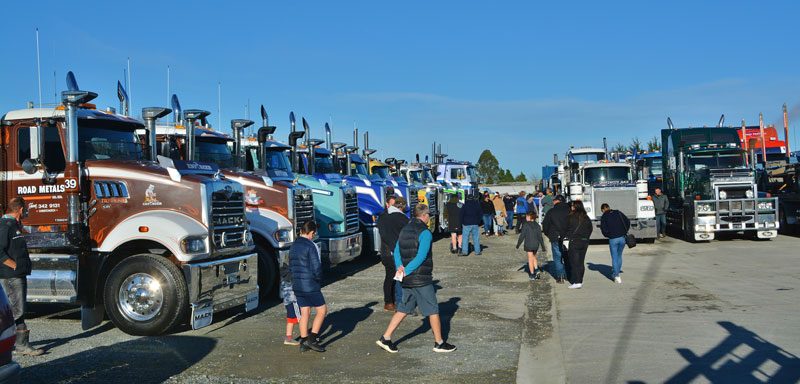
The show has been running since the late 1970s and has a very busy and committed committee with Rhonda Wilson at the helm running it, which ensures us that it will be around for a long time to come.
Yummy breakfast muffins
Nothing like a quick brekkie on the go when you need to jump in the truck and hit the road. Have a go at making a batch of these delicious banana muffins.
Ingredients
• 2 apples (grated, peeled)
• 150 grams butter
• 2 ripe bananas
• 1 1/2 cups self-raising flour
• 2 eggs
• 2 teaspoons baking powder
Method
1) Preheat the oven to 180°C (or 160°C fan-forced). Line a muffin tray with paper cases.
2) Put the grated apple and butter in a saucepan and cook for 5 minutes until nice and soft.
3) Peel the bananas, and mash them in a bowl. Put the cooked apple mixture in with the bananas, and then mix that with the flour, eggs and baking powder.
4) Spoon the mixture into the paper cases and bake for 20 minutes.
5) Allow to cool before serving.
The big T610 Kenworth
One rainy afternoon I jumped in the big T610 Kenworth with truck driver Matt from Steve Martin Contracting, and I was on my way to Nelson.
As we pulled away I could hardly tell that we had a load on – the truck boasted 600hp and we were carrying 30 tonnes of flour.
As we were leaving Christchurch, we didn’t know if we were going up the coastline or up the Lewis Pass, because the road could have been closed because of snow. But Matt made the call and we went up the Lewis Pass – the road hadn’t shut so that was good news!
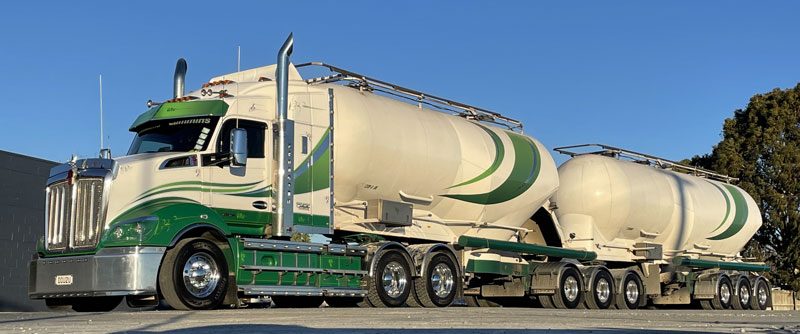
It was my first time in a T610 Kenworth. The truck does about 5500 kilometres a week. Steve Martin Contracting has four trucks. Matt said he has been truck driving for 22 years. It takes about one hour to unload and about 45 minutes to load the T610. Matt likes the truck’s power and it is a manual gearbox. Matt says he prefers black mud flaps over white mud flaps. My favourite thing about the truck was the cool green LED lights, which looked awesome at night.
Thanks Matt for taking me along for the ride, and to Steve Martin, his wife Robyn and the entire crew at Steve Martin Contracting.
Smarter Trucking: What is Fleet Management?
When a company has more than one vehicle, it is important to keep track of all their movements and activities, and make sure all the vehicles are in good, working order. This is called fleet management. Many companies use software that helps them with their fleet management, using technologies such as GPS and analytics.
Having good fleet management processes in place helps a vehicle stay on the road for longer. Here are some of the benefits of fleet management:
• Identifies any potential issues
• Increases a vehicle’s productivity and efficiency
• Reduces fuel costs and saves money
• Helps reduce negative impacts on the environment
• Locates and tracks vehicles while on the road
• Improves driver safety

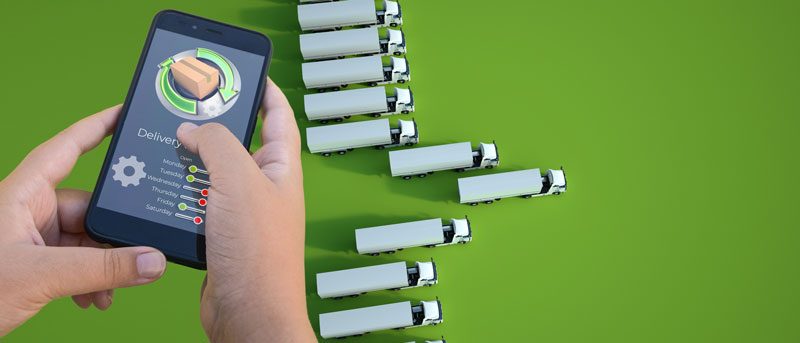

Safety first
We spend a day at the Compliance and Safety Centre with Senior Constable Ian Deane and the team at Ohakea.
Keeping our trucks and drivers safe is a very important part of our job, says Senior Constable Ian Deane. Ian used to drive trucks but decided in 1997 to join the New Zealand Police Force and has been attached to the Commercial Vehicle Inspection team for the last 14 years. He joined to help people, and enjoys the flexibility of the job and the relationships he has built with truck drivers over the years. This shows as I see them go through smiling, waving, and some even stopping to chat.
One of Ian’s teammates, Constable Barry Vinten, was already at the office when I arrived and the “All Trucks Stop“ sign was on letting truck drivers know to pull in on their way past for a quick weigh check to ensure they are travelling safe and within the requirements of the law.
If all is well, it is a very fast process where they drive up to the red light by the office where the scales are and drive over. The weight is logged on the computer inside so the constables can check details. If everything looks good then the driver gets a thumbs up, the light turns green, and the driver carries on with his day.
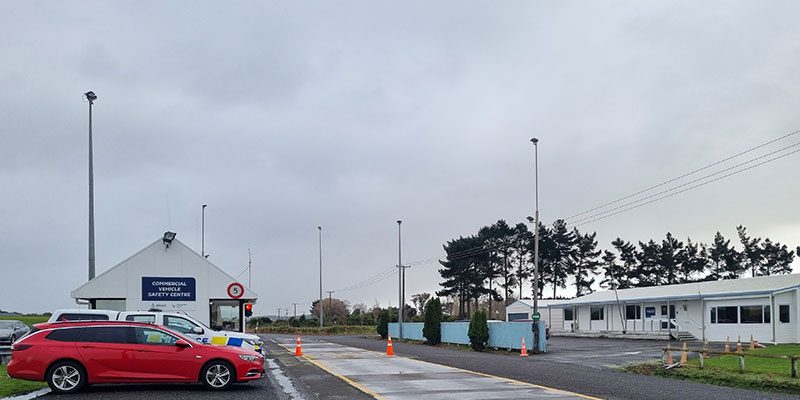
If there is an issue, the driver is asked to pull over and the constable will look further into the matter and if needed fill out a commercial vehicle inspection report.
Senior Constable Deane turns up with cookies and milk! We have a cuppa and talk about some of the things they do.
Weighing the trucks is important as there are limits to how much they can carry safely. Without going into too much detail, they have a list of different axle sets and lengths of vehicles that determine how much each vehicle can carry. For example: an 8 axle truck could carry 46 tonne gross weight, or a 9 axle truck could carry 50 tonne gross weight (with a permit it could carry up to 58 tonne).
But there is more to a Commercial Vehicle Safety inspector than just weighing the trucks. They also check for vehicle defects, things that may be broken or need replacing. The safety of the vehicle can include things like tyres, lights and suspension. Then there is vehicle fitness, they check to see that they are up to date with registration and road user fees and that it has a current COF (certificate of fitness) – this is a safety check done every six months to ensure everything on the truck is working properly. Dangerous goods are another thing that may need checking. Making sure the load is secured/loaded properly. And logbooks, these are a documentation of the hours a driver works with compulsory break and stop times to ensure they get rest and don’t work too long and get too tired. A truck driver can legally drive up to 70 hours in one week. That’s a lot of time trucking! They can work no more than 14 hours in one day including two half hour breaks where they can eat a meal, stretch their legs and have a breather. They must then have at least a 10 hour rest/sleep period. Once 70 hours is worked, they are required to have a minimum of 24 hours off work.
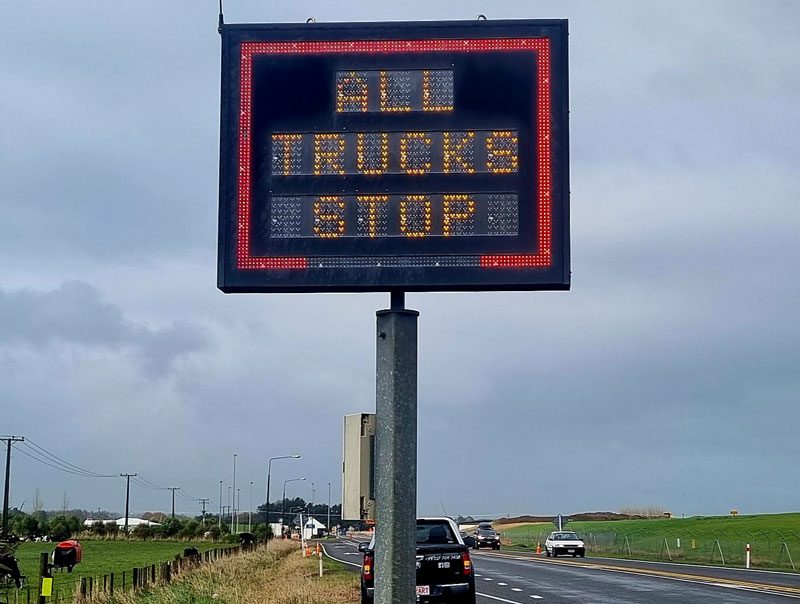
Truck drivers have huge responsibilities, and it is the duty of our Commercial Vehicle Inspection Officers to ensure they are doing their job safely, securely and legally. They are also there to help. Because they are very knowledgeable in their area of expertise drivers, truck owners/operators etc can call on them to answer any questions or enquiries regarding the legal aspects of their work.
There are around 12 Compliance and Safety Centres around New Zealand, and multiple more weigh pits where the officers use portable scales. All weigh bridges are calibrated 12 monthly. This means they are carefully assessed, set and/or adjusted. This is to make sure they are accurate and give correct readings.
Located across from the weigh bridge office are the Highway Patrol (Road Police) and administration offices. Today I saw two of these police officers called away because a truck had veered off the road. Their job is to assess the scene/ area and see what factors may have contributed to this happening and write up a report.






